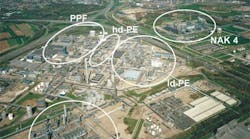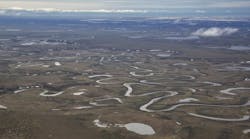Attracting younger people to the oil and gas industry has become a primary focus of large and small companies, operators and service companies, and US and international firms.
Sometimes the emphasis turns to educational institutions, but many companies have internal programs.
One such training effort is the idea of Horizon Well Logging LLC, Tulsa.
Raising standards
Mud logging has often been seen as a semiprofessional rather than professional service, Gino DeMarco, president of Horizon, told Oil & Gas Journal.
"We wanted to introduce technology and improve the quality of the individuals we put in the field," DeMarco said. He also wanted to raise the bar for mud logging services generally.
So Horizon launched a Field Geologist Development Program in late 2009.
An information brochure DeMarco distributes describes the effort this way:
"During its up cycles, the industry hired quickly in an attempt to keep up with a constantly expanding drilling program—geologists often began work with little or no field experience.
"The aggressive drilling program implemented during these up cycles also allowed very little time for an exploration geologist to spend time at the rig site as wells were drilled.
"During the down cycles, the industry had no budget for extensive field training programs or rig site visits. Geologists that kept their jobs between cycles were typically overloaded with day-to-day tasks and had no time for field work.
"The result of these cyclical swings was a large number of exploration geologists with limited wellsite experience, limited time, and limited budget who therefore had to rely upon the mud logger for critical field geology information."
Serving operators
DeMarco noticed that the industry cycles that prevented geologists from gaining field experience were also producing inexperienced and generally undereducated mud loggers.
"We believed that the information and service provided by the entire mud logging industry needed to be substantially upgraded in order to provide exploration geologists in the office with the field geologic information they needed to perform their job well without spending extensive time at the rig site during drilling."
DeMarco wanted the exploration geologists employed by Horizon's clients to be able to rely on his mud loggers for critical, real-time geological information.
Horizon invested in infrastructure in 2009, worked with customers to develop documented processes and standards for professional field geology, and invented software, tools, and systems to deliver accurate, professional geological information.
Horizon also developed a training program to attract, educate, and retain talent to sustain its desired level of professional service.
Training program
To get younger geologists into the field where they could begin to see a career path, Horizon launched the FGDP in late 2009.
The timing was lucky in that the industry drilling bust of 2008-09 and general economic malaise resulted in a large pool of degreed geologists looking for work, DeMarco said.
Applicants spend one week in a classroom and then 4 months working 12 hr on, 12 hr off in the field as loggers. They repeat that cycle three times in a year, residing in rented corporate housing in Tulsa, Oklahoma City, Morgantown, W.Va., and soon San Antonio.
The training starts basic. The entrants learn general operating procedures, quality controls and assurance, and work flows of small and large operating and service companies. As they progress, they are taught organizational dynamics and leadership and advanced field geology and are given extensive training in quality and continuous improvement.
"The key was to get a core group of about 10 so that others would see they weren't taking a chance with something iffy," DeMarco said.
He was pleasantly surprised. The FGDP has a retention rate near 100% for those hired from its growing pool of more than 400 applicants. As of early May, 34 geologists from 28 schools are in the program. About 25% are at masters level and another 25% have two degrees, one in geology and another in petroleum engineering or another scientific discipline. The rest are at bachelor's level.
At the end of the training cycle, each participant develops a half-day specialized training course for other loggers based upon his or her specific field experience. Eventually the entire company is continuously learning.
The future
Horizon's program creates benefits for the entire industry.
A number of operators have expressed interest in hiring Horizon's experienced field geologists, and some colleges have asked whether Horizon would conduct mud logger training in the senior year or as part of a masters level class.
More Oil & Gas Journal Current Issue Articles
More Oil & Gas Journal Archives Issue Articles
View Oil and Gas Articles on PennEnergy.com

